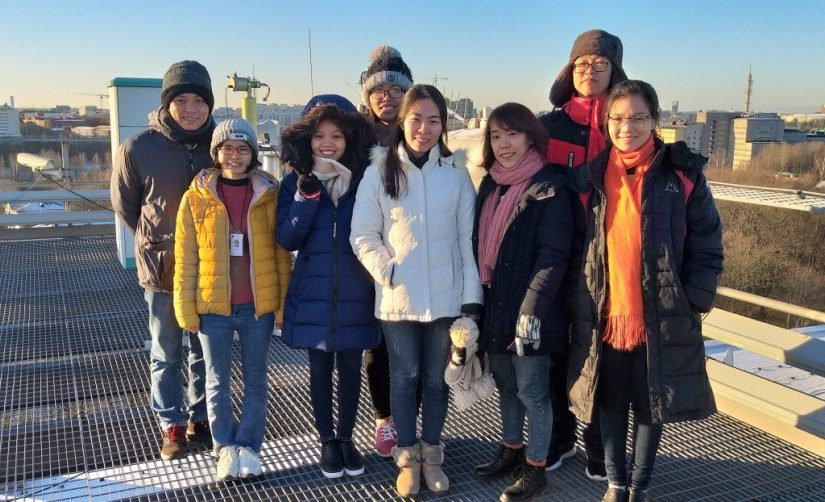Ilmatieteen laitos koordinoi numeeristen säämallien koulutusta Vietnamin ilmatieteen laitoksen (Hydro-Meteorological Administration of Vietnam, VNMHA) työntekijöille. Koulutukseen kuuluu luentoja Vietnamissa sekä kaksi noin neljän kuukauden intensiivijaksoa Suomessa. Koulutus on Maailmanpankin rahoittama ja sen järjestää Ilmatieteen laitos yhdessä Helsingin yliopiston kanssa. Ensimmäinen Suomessa vierailleista ryhmistä on jo palannut Vietnamiin ja toinen ryhmä saapui Suomeen keväällä 2019. Tämän blogitekstin on kirjoittanut ensimmäisen ryhmän opiskelija Huyen.
The Finnish Meteorological Institute (FMI) is coordinating a training on numerical weather predictions for employees from the Hydro-Meteorological Administration of Vietnam (VNMHA). The most extensive part of the training consists of two groups from VNMHA who spend almost four months at FMI. The training is part of a project funded by the World Bank, and it is jointly organized by FMI and the University of Helsinki. The first group has now returned to Vietnam, and the second group has just started their training period. This blog post is written by a participant of the first group.
”I closed my eyes for a while to reminisce the moments I have been through, it is unsurprising that my mind sent me back to my last Saturday and Sunday in Finland. I remember the sun was light, the temperature was 0 degree Celsius but there was a bit of wind, I decided to go out for a walk around Helsinki to say goodbye, and I realized it was a wise decision. After taking a little walk in the open air, I felt a little cold and decided to get on tram No. 9 going from the beginning to the end, and back to the beginning. I would have to thank this tram very much, because a round of this city really took me back to the memorable moments of the previous three months, from the days of setting the first steps to Helsinki.
How I thought of Finland
As soon as I received the news that I was assigned to study in Finland, I was really surprised not only because I would have chance to study at a well-known and prestigious meteorological agency in the world, but also because I would be coming to a country that has never been a country in my bucket list. I tried searching for some information about Helsinki, where I would go to work and study and all the information I found really excited me. Having said that, I understood that traveling to Finland in the winter is not a good choice and tons of challenges are waving me from there. Actually there were days when I wondered whether I should join the trip. Those negative thoughts were quickly replaced by the curiosity about the country I was going to and how can I refuse the happiest land in the world.
What I did in Finland
I went to Helsinki in the evening after a long flight. My first real images of Finland were the long streets of the city, with rows of well-built houses on my hotel street. I spent the whole evening arranging personal stuffs and getting ready for the nearly 4-month winter challenge here. And an indispensable part of the preparation to deal with this challenge is a full baggage of Vietnamese food just in case I was unable to find any Asian stores here.
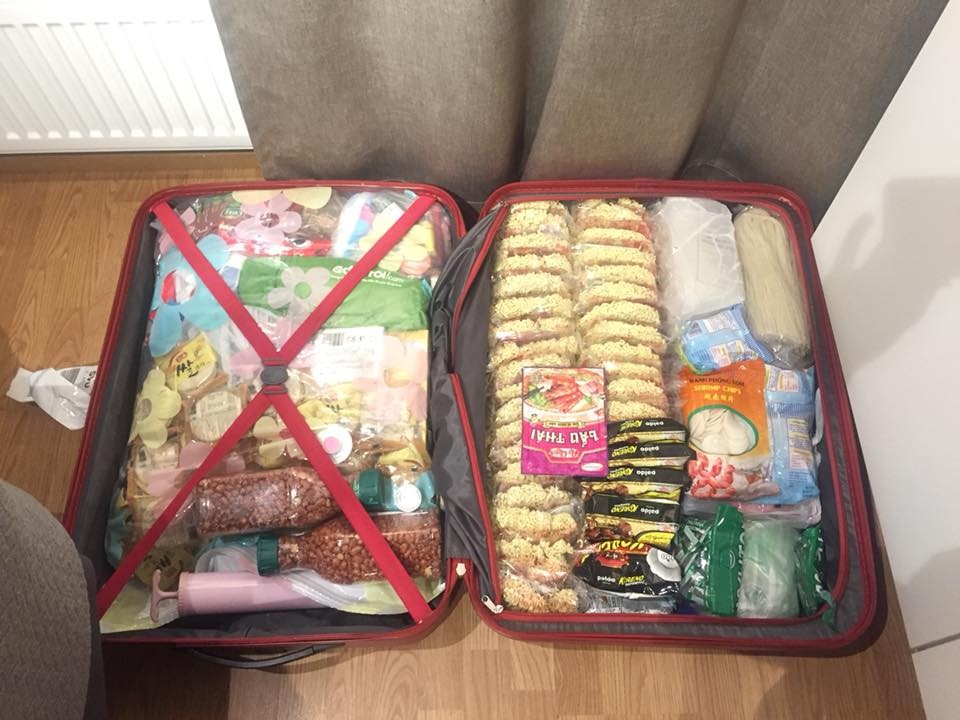
I wish I could rewind the clock because 16 weeks passed so quickly. The first training week started by a presentation about the Finnish culture which I was really interested in. We learnt how to work with Finnish people, adjust working style to work effectively and live well in Finland.
In the following weeks, we focused on intensive numerical weather modeling. We proceeded to learn how to install a regional numerical model on the Taito supercomputer and implement a few test cases to test the predictability of this model. We also learned from theoretical lectures on data assimilation and ensemble forecasting which will be very useful for weather forecasters. In the last weeks of the course, we conducted to build a quasi-operational forecasting system for Vietnam, that is almost similar to the current operational versions running in our institute under the guidance of FMI experts and created verification for those forecasts.
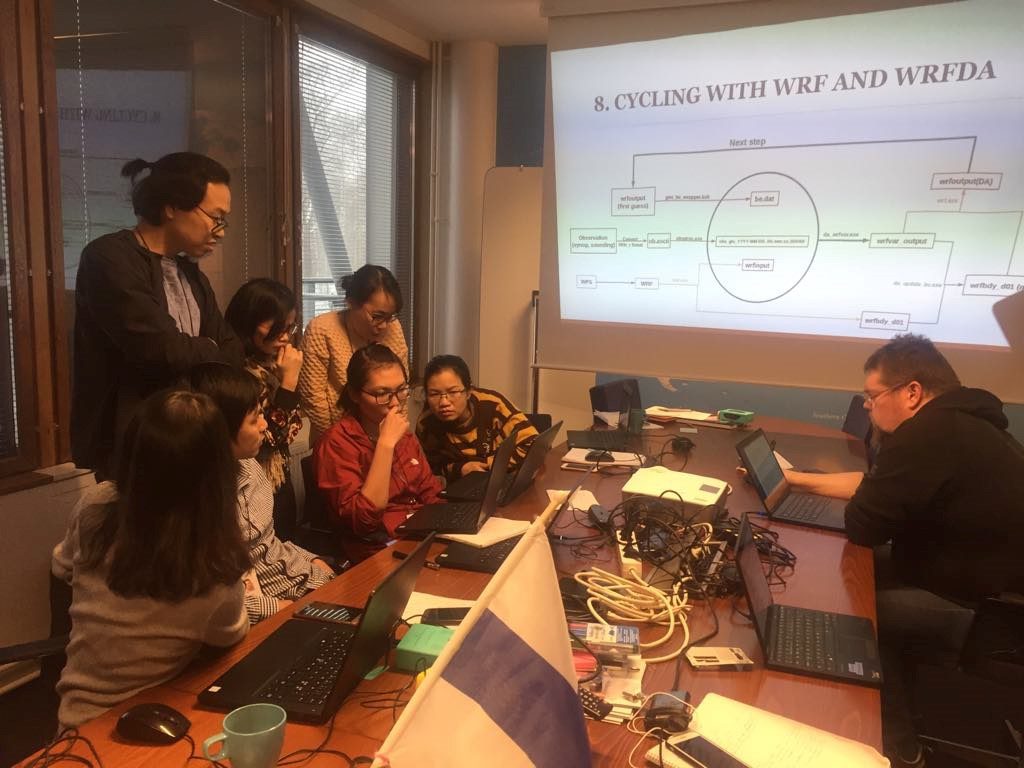
What impressed me of FMI is that they greatly facilitated us to study knowledge outside of our general table. Although the course focused on numerical weather prediction, we have also been introduced to lightning detection by FMI expert. Even when one of us proposed to meet an LAPS expert because she had some questions about this topic, we were all very enthusiastic. In the last week of this training course, we also had a trip to Vaisala company, getting to their factory to see their delicate modern weather products.
Certainly, an indispensable part of coming to Finland is trying skiing. We had an afternoon of skiing and falling off several times, which made everybody feel the pain a few days later. Nevertheless, it was a great experience for us that would probably make the next NWP group envy as we often said.
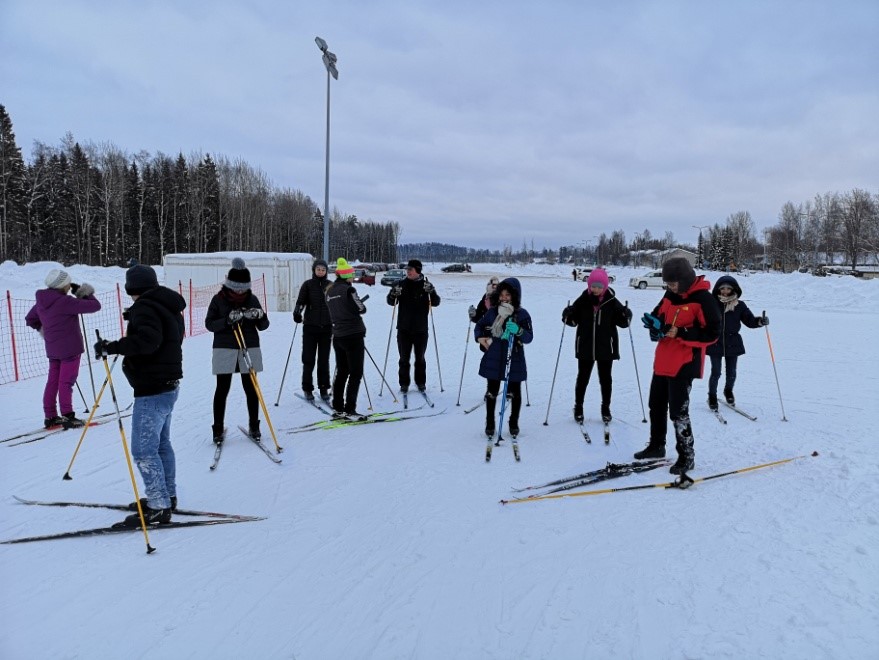
What I brought back to Vietnam after 16 weeks
The most important and expected outcome of any training courses would be the knowledge learned. From my perspective, despite the fact that it is unable to make us who are operational weather forecasters with little NWP knowledge become experts in numerical modelling after four months training at FMI, what I am sure is that this course will be a solid foundation and stepping stone for us who are passionate, curious and enthusiastic young people moving towards higher knowledge in numerical modelling to enhance the forecasting ability and contribute to disaster risk reduction of our country.
In addition to that, we had chance to work directly under the guidance of lecturers from the world’s leading universities and experienced FMI experts. This helped us to learn more working skills, thereby helping me become more confident at working place.
Last but not least, an indispensable part of what I brought home are networking and sincere friends. We are eight people from different regions, from different agencies in VMHA and have never worked together before. After 16 weeks of studying, practicing and doing group work, learning and gaining knowledge together, we have become close and inseparable friends in this course. We are always aware that we are a team and work on a team basis to get the best performance after the course. Although the course was over, we always hope to be important bridges between the agencies in VMHA. So, yes! We are ready for next challenges!”
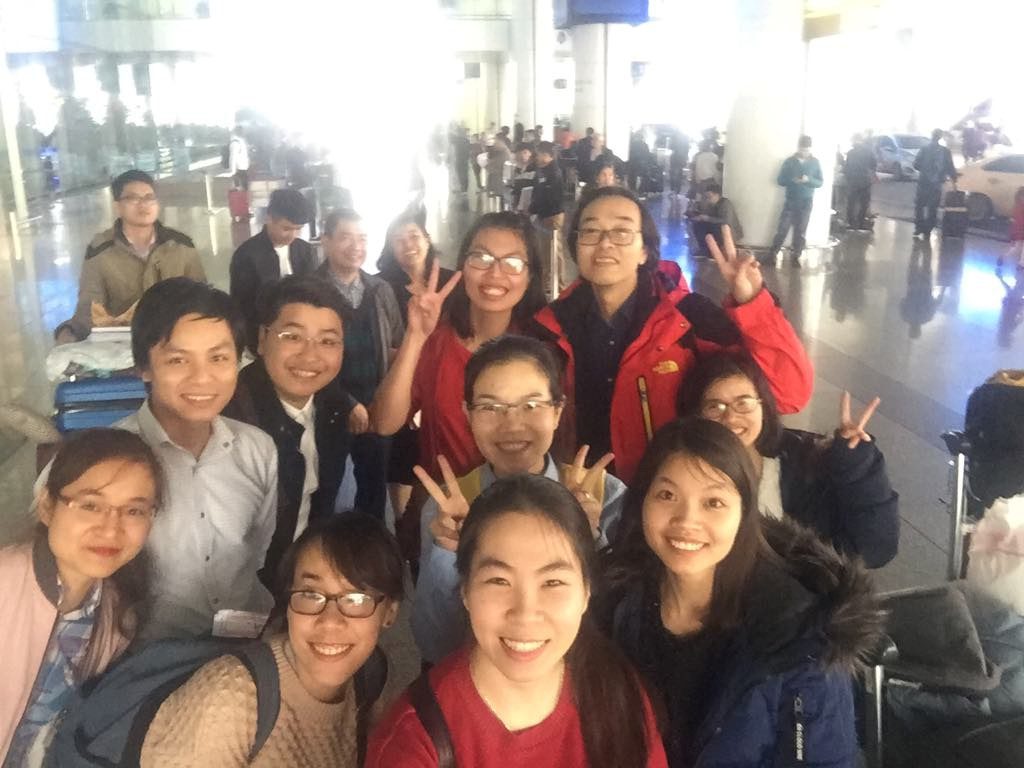
~ Huyen

